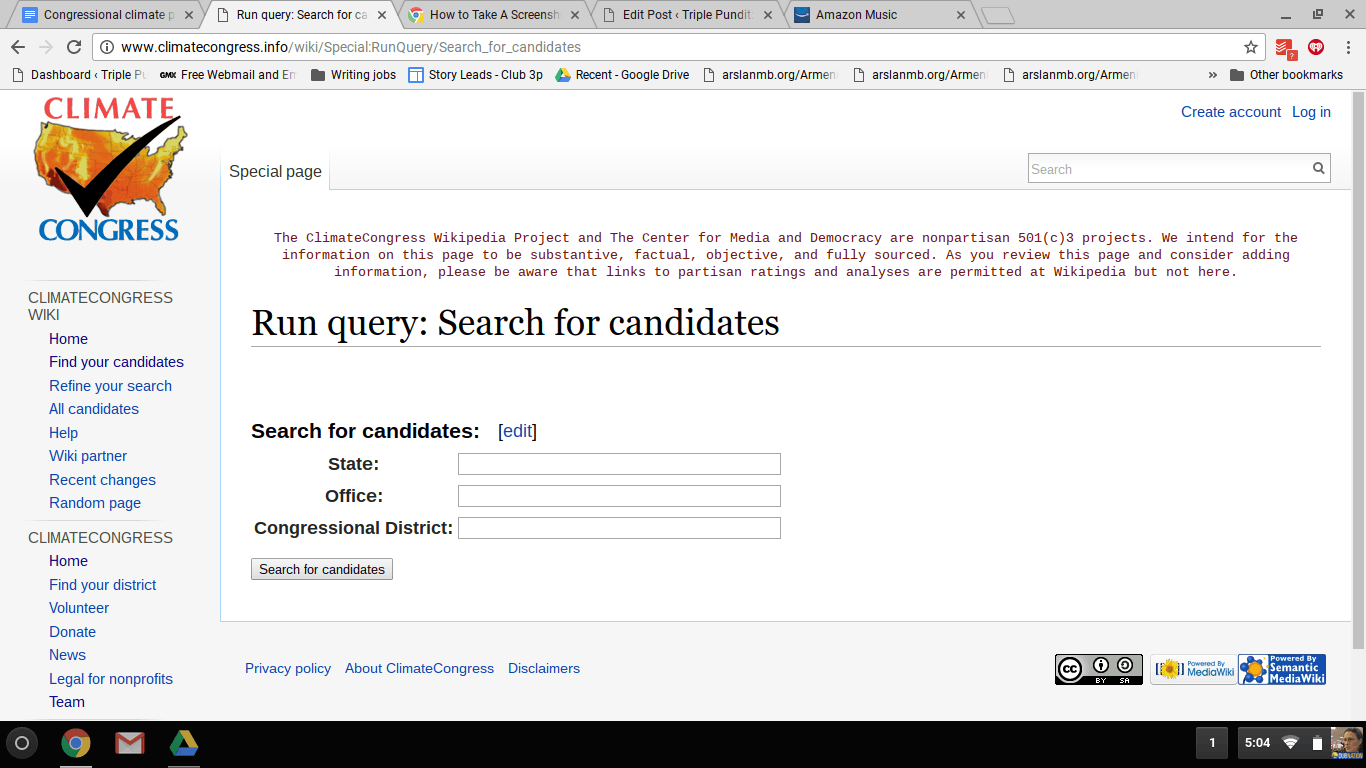
Wouldn’t it be great we could look up the climate change positions of each person running for a congressional office on the Internet? It turns out it does exist, and it’s called the ClimateCongress Wikipedia Project (CCWP).
The CCWP is described as a non-partisan 501(c)(3) climate education project that focuses on providing research and summaries to Wikipedia on the climate positions of each U.S Congressional incumbent and their challenger. It is essentially a place where voters concerned about climate change can find out how those running for congressional office stand on the issue. It is the first election resource about how congressional candidates stand on climate change.
“It’s time for more clarity going into the election. We all should know where our legislators stand on climate change," Mike Mielke, co-founder of the ClimateCongress Wikipedia Project (CCWP), said in a statement.“A coordinated surge of interest at the last minute from allied climate and environmental organizations could make the climate issue a factor in some 2016 races," said fellow co-founder Felix Kramer.
The CCWP team researches candidates by asking the following questions:
- What are the individual's views on whether climate change is real and caused by human activity?
- What votes, actions, and governmental/organizational activities on climate change and clean energy has the individual led/supported/opposed?
- What has the individual said about local and regional climate-related impacts and activities?
A look at the information for the two Senate contenders in Georgia shows the value of the information the CCWP teams provides. Sen. Johnny Isakson is the Republican incumbent. When it comes to climate change, he is an obstructionist. He voted to limit the U.S. Environmental Protection Agency's ability to regulate greenhouse gas emissions in 2011. Two years later, he voted for a concurrent resolution creating a point of order that made it harder for Congress to put a price on carbon. In 2015, he voted against several amendments that stated climate change is real and caused by human activity. That same year, he voted against the Obama administration’s Clean Power Plan.
Jim F. Barksdale is the Democratic challenger to Isakson. He states on his campaign’s issues page: “Climate change is a reality and if left unchecked, rising ocean tides will harm Georgia’s Atlantic coast and threaten our state’s robust tourism and shipping industries.” So, Barksdale would likely not be one to vote against measures that seek to lower GHG emissions.
This distinction clearly makes a difference. Less than two weeks ago, Hurricane Matthew caused flooding in the Southeast, including Georgia. The hurricane caused record high tide level and a storm surge just under eight feet at Ft. Pulaski, Georgia. Matthew also impacted South Carolina, causing waist-deep storm surge in parts of Charleston.
The Southeast can expect to experience more tropical storms and flooding. Over the next century, anthropogenic warming will likely lead to an increase in intense tropical cyclones and a projected increase of about 10 to 15 percent for rainfall rates within about 100 kilometers of the storm center, according to the Geophysical Fluid Dynamics Laboratory (GFDL).
While the media is focused on this year’s presidential race, much is at stake when it comes to the congressional races. Who we elect to Congress will have the power to enact laws. We need to ensure that we elect congressional members who believe in climate change and want to do something about it. There’s no time to waste.
Image (screenshot) courtesy of the ClimateCongress Wikipedia Project

Gina-Marie is a freelance writer and journalist armed with a degree in journalism, and a passion for social justice, including the environment and sustainability. She writes for various websites, and has made the 75+ Environmentalists to Follow list by Mashable.com.














